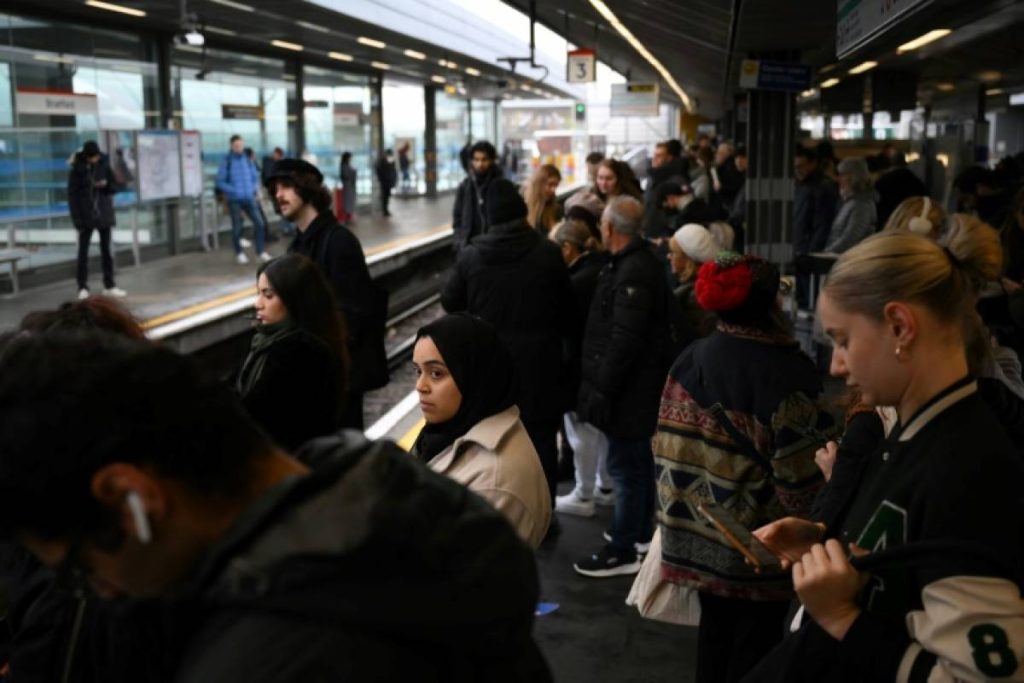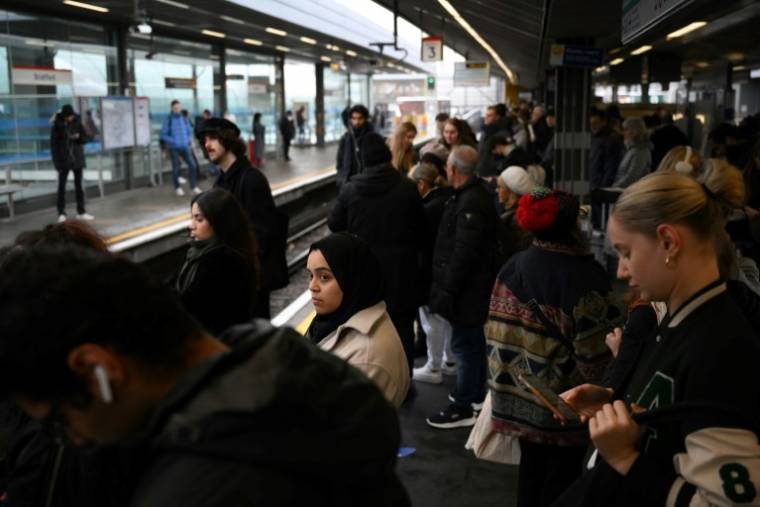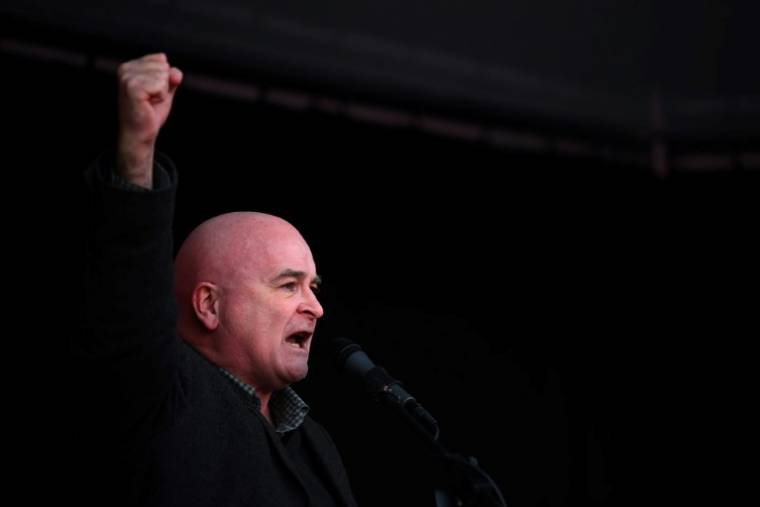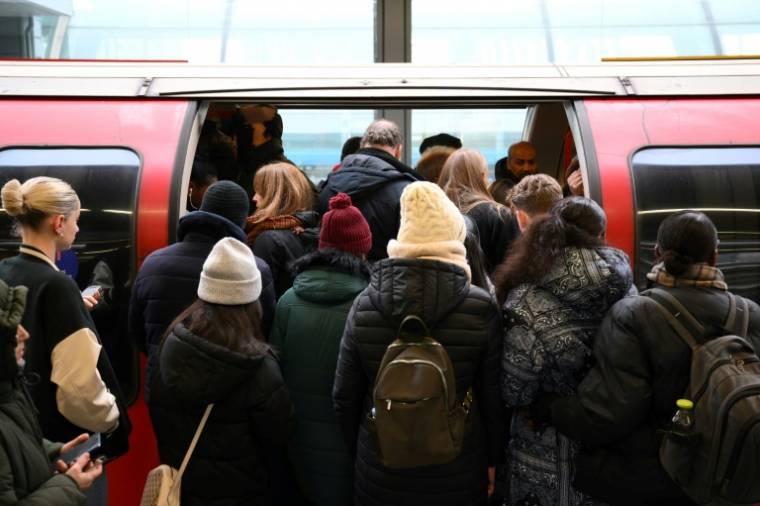
UK: Train strike triggers chain of social movements – 12/14/2022 07:45

Passengers wait for a delayed train on December 13, 2022 in London on the first day of the rail strike (AFP/Daniel LEAL)
The beginning of a new “winter of discontent”? Many Britons struggled to get around on Tuesday, the first day of the UK rail strike, in the face of widespread social unrest in the face of soaring fares.
Training, logistics, Eurostar and border police security officers, but also nurses – for the first time in more than 100 years – paramedics, etc. With the end of the year holidays approaching, calls to strike multiplied in many sectors to demand increases.
Between now and December 31, no strike day will spare.
The British media is already talking about a “new winter of discontent,” referring to the massive strikes that rocked the country in the late 1970s and caused the British economy to lose tens of millions of workdays.
If we are still far from these levels, with almost a million days lost since the beginning of the year, we lost 417,000 working days in the month of October alone due to labor disputes, “the highest since November 2011”. The Census Bureau said on Tuesday.
As in the 1970s, inflation was at the heart of demands for better wages. At more than 11%, it hits household purchasing power hard, driven by energy prices, especially given the impact of Russia’s invasion of Ukraine.
In the public service, nurses are demanding a salary increase of more than 17% from the state to make up for years of scarcity. A request that the government considers “unacceptable”. In the field of rail transport, the RMT union rejected a proposal for an 8% increase over two years, considering it insufficient in the face of rising fares.

RMT union general secretary Mick Lynch at a rally in support of the Royal Mail workers’ strike on December 9 (AFP/Daniel LEAL)
According to the National Statistical Office, despite the improvements obtained in some sectors, wages fell by 2.7% between August and October under the influence of inflation.
– ‘Virtual’ Christmas –
In the face of his demands, the government adopted a very firm tone, justifying its refusal to respond to the demands of the unions by the delicate situation of the country’s public finances and the danger of seeing wage increases fueling inflation. He mobilized the army to replace the strikers in certain sectors.
“I think we have a fair and reasonable approach,” Prime Minister Rishi Sunak, whose government is standing in the polls, told the BBC.
“I would like to ask union officials… to put an end to the disturbances, especially around Christmas. This will have a negative impact on people’s lives,” he said.

Passengers board a delayed train on December 13, 2022 in London on the first day of the railway strike (AFP/Daniel LEAL)
Transport Secretary Mark Harper said on Tuesday on the Radio Times that the government had already provided “significant support” to households to offset higher energy prices.
And he had earlier criticized the new “virtual” Christmas that the strikers were preparing to take to the Britons, preventing them from visiting their families for the holidays.
Nurses union general secretary Pat Cullen, for her part, estimated to the BBC that “this government has turned its back” on nurses, who must number up to 100,000 to strike in England, Wales and Northern Ireland on Thursday and 20 December.
– You understand –
Two years before the legislative elections, the Labor opposition blames the government. Party leader Keir Starmer accused the executive of a “massive lack of leadership”, for failing to prevent the nurses’ strike.
According to a YouGov poll published at the end of November, 47% of Britons oppose a transport strike when 41% support it, and commuters interviewed by AFP Tuesday in London at the unusually quiet King’s Cross station were favorable to Somewhat.
“I totally understand them… it’s hard for people right now,” said Alan Smith, a 28-year-old web developer who was trying to find an alternative plan to get to Heathrow.
Chris McBride, a 74-year-old former firefighter, judges the government “incompetent” to support families. “I’m retired,” he says, “I have to be careful to warm up, it’s hard.”

“Unapologetic pop culture trailblazer. Freelance troublemaker. Food guru. Alcohol fanatic. Gamer. Explorer. Thinker.”
